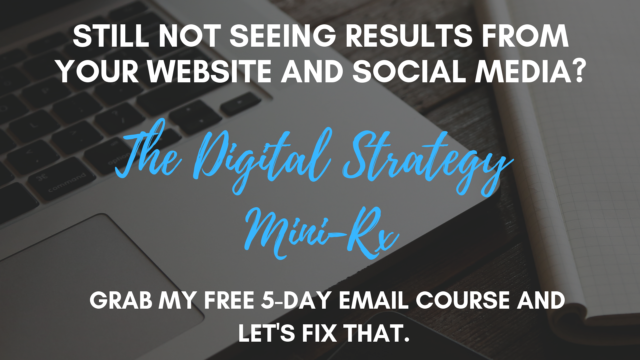Physician side gigs. It’s all the rage right now. And rightfully so. But why is making a profit such a struggle for so many?
Physician side gigs. It’s all the rage right now. And rightfully so. In my own personal experience, I’ve found some of the work I’ve done as an entrepreneur to be just as satisfying – if not more so – than some of my academic or traditional medicine practice. It’s a great creative outlet (I founded a grew an internationally successful maternity athletic apparel company) – fun, right?
From that, I gained a decade of experience in online marketing, branding, social media business tactics, and other key business growth strategies. So now I teach those. And it’s so fun. But for many doctors trying to get their side gigs or start-ups to actually make a profit, it’s a struggle. I totally understand.
Having coached hundreds of doctors in the same boat, here are the four top reasons most of their businesses don’t work out:
1. They choose businesses as an escape route, disillusioned from the realities of modern day clinical practice. But they don’t have passion behind what they’re doing. Don’t get me wrong – it’s not that they don’t have passions, but they choose a business that seems ‘easier’ or take an opportunity someone else suggests that they just don’t truly love.
The truth is that building a business or brand takes work. Even establishing successful passive income streams takes a lot of work up front. And to have the resilience to do this work on top of your regular job as a physician is putting yourself on the fast track to burnout and misery. Unless you love what you’re building. Then, those late nights and long hours (in addition to your existing late nights and long hours) are fun!
2. They don’t know enough about business or branding to have a clear action plan. Therefore, they make a lot of mistakes that could be easily avoided with a business coach or course. Some of those include truly basic social media mistakes. They don’t know how to create compelling content. But, they hesitate to invest in a branding or business course, and they don’t invest in a coach or consultant, because it’s expensive.
This is true. But it’s probably a drop in the bucket for their overall salary and budget. It’s absolutely a drop in the bucket compared to the returns. (For example, I earn $20,000 for a keynote – and I charge less than $2000 for a 3 month course on building a speaking business. My retail company earned 6 figure revenues each year, and I charge less than $2000 for a 3 month course on growing a successful brand.) But, I think I know why there’s so much reluctance to invest even these relatively modest amounts, and that is…
3. They’ve been paying to outsource in an attempt to grow, but it isn’t working. Because physicians working on side gigs don’t know enough about business or online marketing or websites, they’re outsourcing a lot. But they are often outsourcing the wrong things. Plus, they aren’t in a good position for negotiation with virtual assistants or marketing professionals who can just tell that these doctors don’t know anything about the services they’re asking for.
So, they either get overcharged, end up with the wrong service package, or they go with a less expensive and less effective option.
After a while, they’ve been ‘investing’ in help for their physician side gig and not seeing real returns, so they are skeptical. Who wants to pay for yet another product, service, or training that’s a waste of money? No one I know.
But the reluctance and skepticism and unsatisfying prior experiences don’t change the facts. These aspiring entrepreneurs still don’t know how to create a compelling brand. They miss opportunities to establish their websites and protect their ideas. They don’t know what to do if they don’t have a website yet.
And they question the credibility of their peers who actually could help – the ones who do understand the unique aspects of growing a successful physician side gig – because they wonder if we have real credentials in digital marketing, branding, and business social media. Which brings us to…
4. They’re right. There’s suddenly a flood of physician coaches who want to help you grow your side gig or start your business. Any smart consumer would ask about credentials.
Sometimes, these credentials are nothing at all, except an entrepreneurial spirit on that physician’s part – they’re recognizing the need for physician side gig coaches and they’re going for it! Others have taken a course on becoming a coach. These can be extensive and rigorous or they can be just a few online hours of learning. And, they can be focused on business or on other aspects of living, but very few are specifically focused on physicians shifting into nonclinical business models or medical practice growth.
A few of these companies or coaches have the credentials of real personal successes and can share their valuable lessons learned.
And some have extensive experience, having grown multiple businesses for themselves and their clients – that’s what I’ve done for 10+ years using website strategy, on and off page SEO for carefully researched and client-centric longtail keywords, all driven by analytics and leveraging powerful but focused marketing strategies. But, I don’t have a marketing degree or any formal education (except some website and social media certifications). That would probably be the ideal – a personal who is actually a trained doctor and also a business degree in digital marketing.
So the problem is that physicians want to grow their side gigs, but they don’t know enough to get it done easily, and they don’t know enough to outsource it well. Non-physician marketers and business coaches don’t understand the unique physician-centric complexities, and physician colleagues who actually sell business coaching services are often under-qualified to do so.
When you’re deciding whether to invest in the latest course, conference, retreat, mastermind, private group, or whatever the offering may be, here are four questions to ask about the service:
1. Does the company/coach have personal business success in the domain of your interest? It doesn’t have to be exact, but if you want to speak professionally, you want someone who has that experience. If you want to launch a retail brand, you want someone with that experience. If you want to have a successful virtual business or networking marketing business, well, you get the idea.
2. Does the company/coach have a deep understanding of the physician needs and challenges? It certainly helps if they are actually doctors, but it’s not a requisite. What is essential is that they understand the complexities. Doctors with side gigs have unique contractual considerations with their employers, unique liability considerations for their businesses, and a variety of other issues that simply don’t apply in the same way to other entrepreneurs.
3. Is there a guarantee? I don’t mean a results guarantee (obviously, your results depend on you and your ability to execute to a large extent) necessarily, but a solid and fair refund policy is an important aspect to investigate. I personally have a full money-back guarantee, despite the fact that my entire business is based upon intellectual property and content that I will have already delivered. My customers can be the judge of the value.
4. Are there testimonials and other satisfied prior clients who can vouch for the company, consultant, or course? If not, it’s a bit of a gamble. If so, that’s encouraging. Plus, don’t be shy about asking to be put directly in touch with prior clients if you want more detailed review of the service or product you’re considering.
When you’re deciding whether to invest in a mastermind or coach, or to outsource some responsibilities in the immediate future, here are four questions to ask yourself:
1. Do you have clarity on the kind of business model you want? Depending upon your interests and your preferences, there are at least 8 industries you’re potentially qualified to serve (even without additional education or training), and there are a variety of customer factors to consider. And while everything takes elbow grease and hard work to bring to life, some business models are more automated than others, and can function without your physical presence. That’s awesome for cash flow, but a bummer if you get a thrill from the interaction.
2. Do you know exactly who your customer is? As an extension of the first question, you could be in more of a B2B (business to business) model or a B2C (business to customer) model. I’m more of the B2B – I help physicians who want successful, profitable side gig businesses, even if that business is simply their own professional brand or growth of their medical practice. You may want to do the same, or you may want to offer something to a layperson consumer audience.
3. Do you know what language your customer uses to describe their needs? Why does this matter? SEO, baby! The choice of keywords for your website and other content will depend heavily on what language your customer uses, and very often, this is different from the ‘insider’ industry language. Since many of my clients are totally unfamiliar with search engine optimization, specific analytics terms, meta data, longtail keywords, etc, if would make little sense to build a marketing strategy exclusively around those. It’s not what my clients type into the search bar. Instead, they type ‘how to make a side gig profitable’ or ‘how to make money online’ and so forth.
4. What’s your brand promise, brand voice, and brand vibe? Do you know how to describe what you offer, who it benefits, and how it solves their problem? How will they feel after investing in working with you? Does your brand have the formal voice of a prestigious expert or the casual voice of a friendly neighbor? You have to be able to communicate these clearly so your customer recognizes themselves in your marketing materials.
Your 'about me' page isn't about you! It's really to help your ideal audience to recognize themselves and their challenges, and that you can help! Click To Tweet
If this sounds like you, I hope you’ll take the leap and join me! If you ignored that pop-up, click this link to get my free 5 day email course on digital strategy
So, you need clarity on your business model, your customer, and their language to describe their problems, and your own brand voice and promise. These are core essentials that you must know in order to execute a successful online strategy. They are also what you’ll need to be able to communicate explicitly to any third party outsourcing you consider. Lack of understanding around this is what prevents you from connecting with customers – a false wall of a marketing persona that stands between you and the people you want to serve.
If you’re a physician looking to establish a profitable side gig or launch a new business or establish a successful professional brand, good for you! You can and should pursue these endeavors.
But if you’re feeling frustrated because there’s too much to do, and you don’t know what to do first, and you don’t know the best way to do it, and you don’t seem to have much luck with outsourcing…well, you’re not alone.
These are the reasons that most physician side gigs don’t make a profit, while a few others are incredibly successful. If you’re serious about moving ahead and getting real results, I invite you to check out any one of my programs – The Social Prescription, The Branding Prescription, and The Speaking Prescription (and coming soon, The Online Course Prescription). Check out the details of the curricula for each course, and read the testimonials of prior clients.
And if this doesn’t seem right for you, I still encourage you to invest in your dreams with a course or a coach or a consultant who can help you make your physician side gig a success – perhaps so much so that it becomes your main gig! And of course, whether your purpose for being online is about your own practice, your own career, or a healthcare advocacy cause, you should be on social media with your physician voice- this article has 20+ ways this benefits you, patients, and society, so read it.
If this article had value for you, please share it with your professional colleagues who are trying to get their side gigs off the ground and make their passion projects actually pay their bills!











